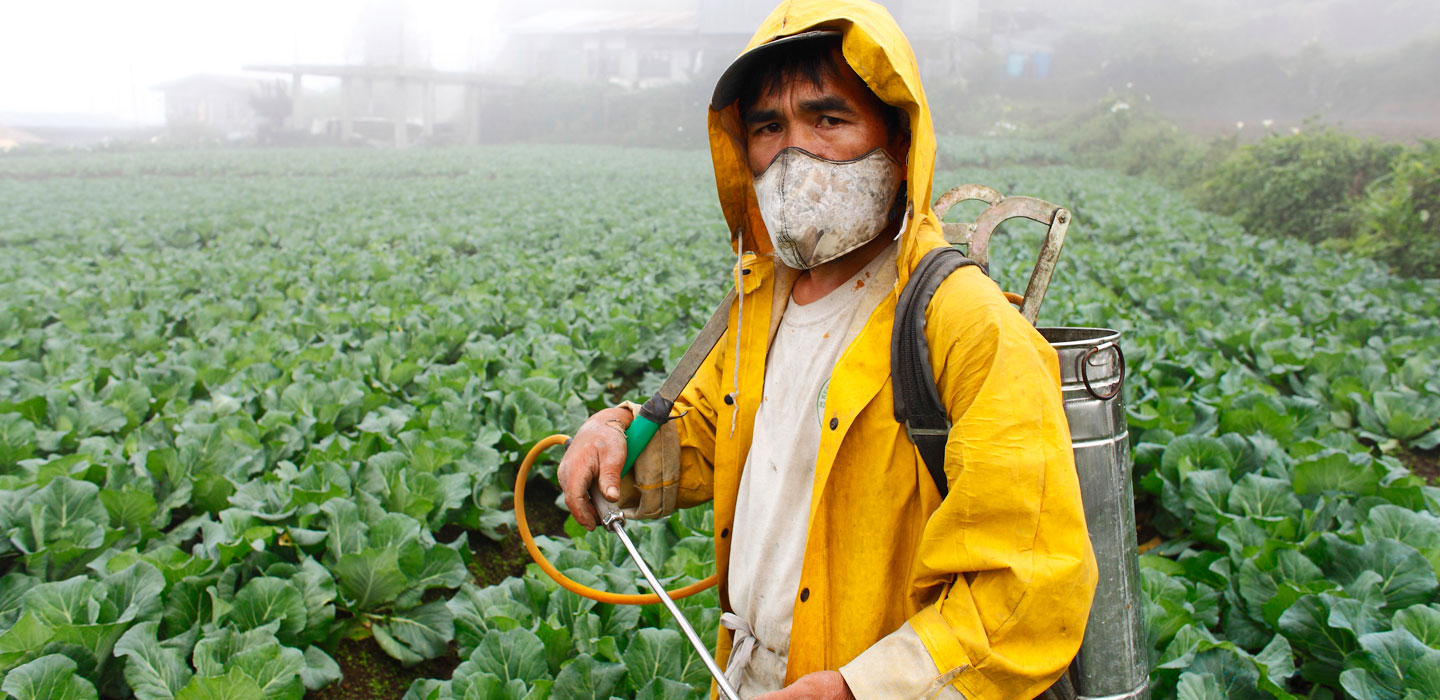How do shocks affect project impacts?
IFAD Asset Request Portlet
Publicador de contenidos
¿Cómo afectan las crisis a los impactos de los proyectos?
El caso del tifón Haiyan en Filipinas y el proyecto IRPEP del FIDA
Tiempo estimado de lectura: 3 minutos
©FIDA/GMB Akash
La experiencia del pasado nos dice que se necesita un apoyo rápido y adaptado para asegurar que los impactos de nuestros proyectos estén protegidos de los efectos de la crisis de COVID-19.
Proximamente en español.
There are two ways that the COVID-19 outbreak could affect the impact of IFAD projects. First, restrictions on movement and gatherings, along with closures of Project Management Units and service providers, could temporarily hinder project delivery. Second, difficulties in accessing markets, inputs, cash and information could prevent rural people from benefiting from project activities. It is this second threat that has the greatest implications for IFAD’s long-term development goals, as its effects could linger if beneficiaries cannot recover quickly.
The Irrigated Rice Production Enhancement Project (IRPEP) serves as an example of this threat. Implemented between 2010 and 2015, the project aimed to increase the productivity of small-scale rice farmers in the Philippines by building and rehabilitating canal irrigation systems and strengthening Water Users’ Associations. In 2013, however, many project areas were severely affected by Typhoon Haiyan, one of the most powerful and damaging typhoons ever recorded.
While more severe in terms of physical damage compared to the COVID-19 outbreak, the shock posed similar threats to beneficiaries’ livelihoods. Either because they were destroyed or because transport links were disrupted, markets remained unavailable, leaving producers unable to sell their surplus or purchase inputs (especially high-yielding seed varieties). Many also saw their already-limited liquidity fall further, which forced them into unfavourable cash-for-harvest credit arrangements with middlemen to meet short-term cash flow needs.
Three years later, an impact assessment found that the project’s objectives—chiefly, improved rice yields and income—were not achieved for the beneficiaries most severely affected by Typhoon Haiyan. Although response efforts by the country team helped the majority of beneficiaries, some were unable to take advantage of the improved irrigation because of damage to key equipment and a lack of access to seeds.
IRPEP was not the only project that struggled in the wake of the typhoon. An evaluation of the Department for International Development’s response effort, for instance, concluded that their relief activities needed to be quicker, better tailored to local needs, and delivered over a longer timespan (for example, providing livelihood support for only up to six months after the typhoon was found to be insufficient).
The lessons learned from this experience have already been incorporated into our work. For instance, IFAD’s 2017–2022 Country Strategic Opportunities Programme for the Philippines emphasizes the need to combine faster responses to shocks with tailored support to enable rural people to adapt to their effects – as does the Inclusive Agri-Food Value-Chain Development Programme in Mozambique, designed in response to the devastation caused by Cyclone Idai in 2019.
Lately, these lessons – from IRPEP and other projects – are informing IFAD’s operational response to COVID-19 as well. Our country teams have quickly developed tailored solutions that focus on short-term support for long-term livelihood recovery, facilitated by fast-tracking procedures that balance the need for both speed and quality assurance. IFAD has also launched a Rural Poor Stimulus Facility in order to quickly channel investments into response activities in the areas of input and market access, rural finance, and digital information services.
The experience of IRPEP has shown that shocks can slow progress towards development goals. The lessons learned from this experience are helping IFAD to ensure that this is not repeated for the COVID-19 crisis.
Read more about IFAD’s response to COVID-19.
Learn more about IFAD’s work in the Philippines and Mozambique.
Fecha de publicación: 29 abril 2020